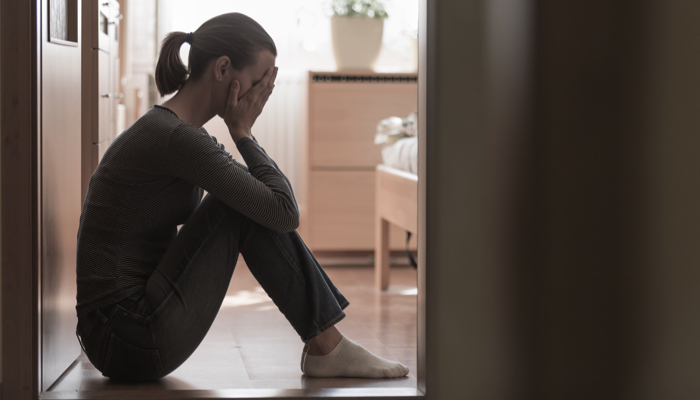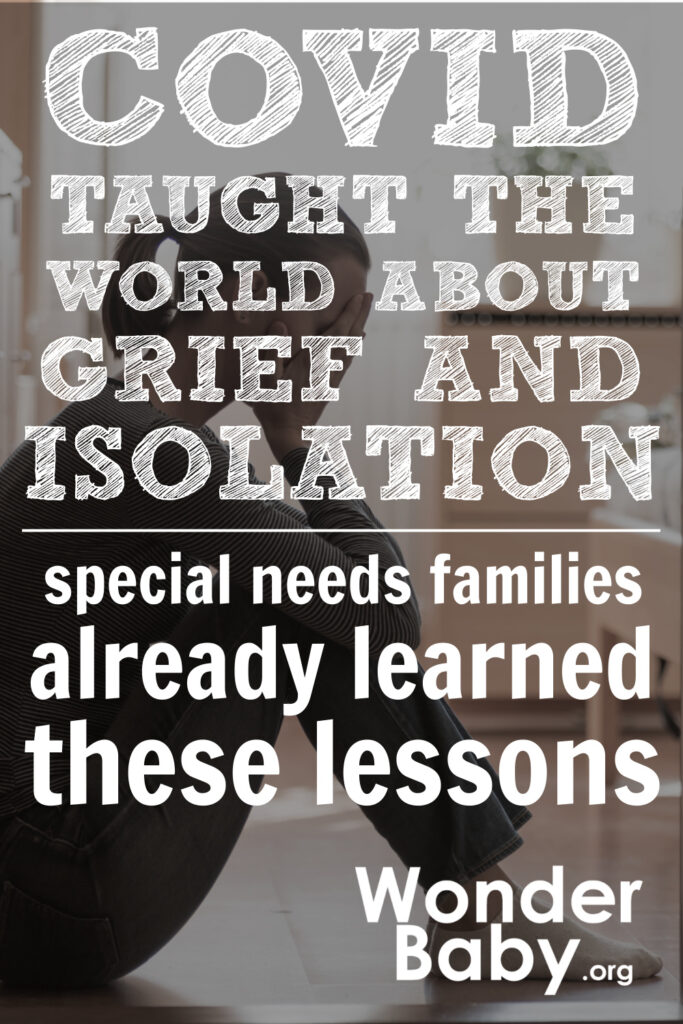COVID Taught the World About Grief and Isolation; Special Needs Families Already Learned These Lessons

- Grief is an emotion we all feel, but seldom acknowledge.
- Special needs parents encounter grief in a wholly unique way and have had to learn to live within the bounds of grief.
- Maybe the world now recovering from the COVID pandemic can learn something from parents of disabled children who have already developed coping skills.
Grief is an emotion shrouded in darkness, living in the shadows, lingering, breathing.
When you are told that your beautiful newborn baby has a disability and will live a different life to the one that you had expected, the first feeling is usually numbness and shock.
All the hopes and dreams you had been carrying for the future are suddenly altered irrevocably. What will this new life look like? Remember those parenting books and articles you previously read with great enthusiasm? They no longer apply. The future is now unclear.
Most of us facing this new future have never even considered disabilities before. We may have a vague idea of what life with special needs may entail, but we don’t really have a clear vision. This lack of understanding leads to fear and ultimately to grief.
Searching for Support
Each family has their own path to travel and while their diagnosis may be the same, the support and understanding of those around them is not. Some families may already have a robust support network in place, while others may find themselves growing apart from friends and loved ones they used to rely on.
This loss of support can be devastating. Social situations which you once anticipated with enthusiasm must now be meticulously planned and arranged, or avoided altogether.
It’s the awkward silences of others that can make you sink further into silence, isolation, then grief.
You may find it difficult to accurately describe the full range of emotions that you are experiencing. This is perfectly normal! Having your child diagnosed with a disability can be devastating, but you also love and adore your child. How is it possible to feel grief and wonder at the same time? How can you explain this to someone who has never lived through the same experiences?
You may feel the need to constantly explain your child’s diagnosis to others, but in truth there should be no explanation required. Each child is uniquely beautiful – differently abled or not.
You may want to explain to your family how you feel, but you can’t put it into words.
Unfortunately, we do not live in that idyllic world where no explanations are required. It’s this feeling that one will somehow be judged that keeps parents silent.
Silence and Isolation
Many choose to live their rich, beautiful lives behind closed doors.
Society is often ill equipped to deal with the issues that some of us are forced to face and, rather than subject their child and themselves to the judgements of others. Parents remain detached from their community, not because they want to be, but rather as a protective shield for their child.
Sometimes the nature of grief is that not every parent has the capacity to challenge the injustices that their children face on a daily basis. They somehow feel that their inability to do so is letting their child down, when in truth, they are doing the best they can within their circumstances and control.
Stepping Out of the Shadows
During the past two years of forced isolation, the world has been living in unprecedented times. Grief and loss have now come to the forefront of many lives. It has altered how we’ve had to interact and socialize. It has pushed many to the brink of despair.
That is, except for a select group who, unbeknownst to themselves, have subtly gained the skills others have not, because of what they have had to contend with in their everyday lives.
Parents of disabled children and their families have learnt to adapt, work within the boundaries laid out for them and find joy and happiness in the unexpected moments. Many have unwittingly gained the skills that others over the past two years have only begun to experience. Perhaps it is time that parents of differently abled children step out of the shadows and into the limelight.
Those now having to embark on a new and unsettled future for the first time, must first grieve the life they thought they would live. Only then may they be able to embrace the one laid out before them.
Being willing to admit that our frailties may in fact be our strongest allies could be perceived as a little far fetched and unrealistic, but if we are to move forward, a linear approach could in fact be the opposite of what is required.
Some may argue that it is naive to believe that in the new world we now live in, there is an opportunity for us to re-examine the true meaning of the concepts “differently abled” and ”inclusivity” and the stigmas that surround them, having experienced isolation in one form or another. In the future, perhaps concerted efforts will be made in addressing what for others is the norm.

Related Posts

Eye Conditions and Syndromes, Visual Impairment
Neuralink Announces Plans to Restore Sight to the Blind with Brain Chip
Elon Musk’s company Neuralink has announced plans to begin human trials of its new “Blindsight” brain chip by the end of 2025.

Special Needs
5 Spring Cleaning Tips for Families of Children with Disabilities
Spring cleaning is an opportunity to create a more accessible, organized, and supportive space for your child with disabilities. Declutter, deep clean, and refresh!

Visual Impairment
The Gift of Understanding: How a Young Child Helps His Blind Father Navigate Life
When a parent is blind, it’s natural for people to wonder how their sighted child will adapt. Will they struggle to understand their parent’s needs? Will they feel burdened by...